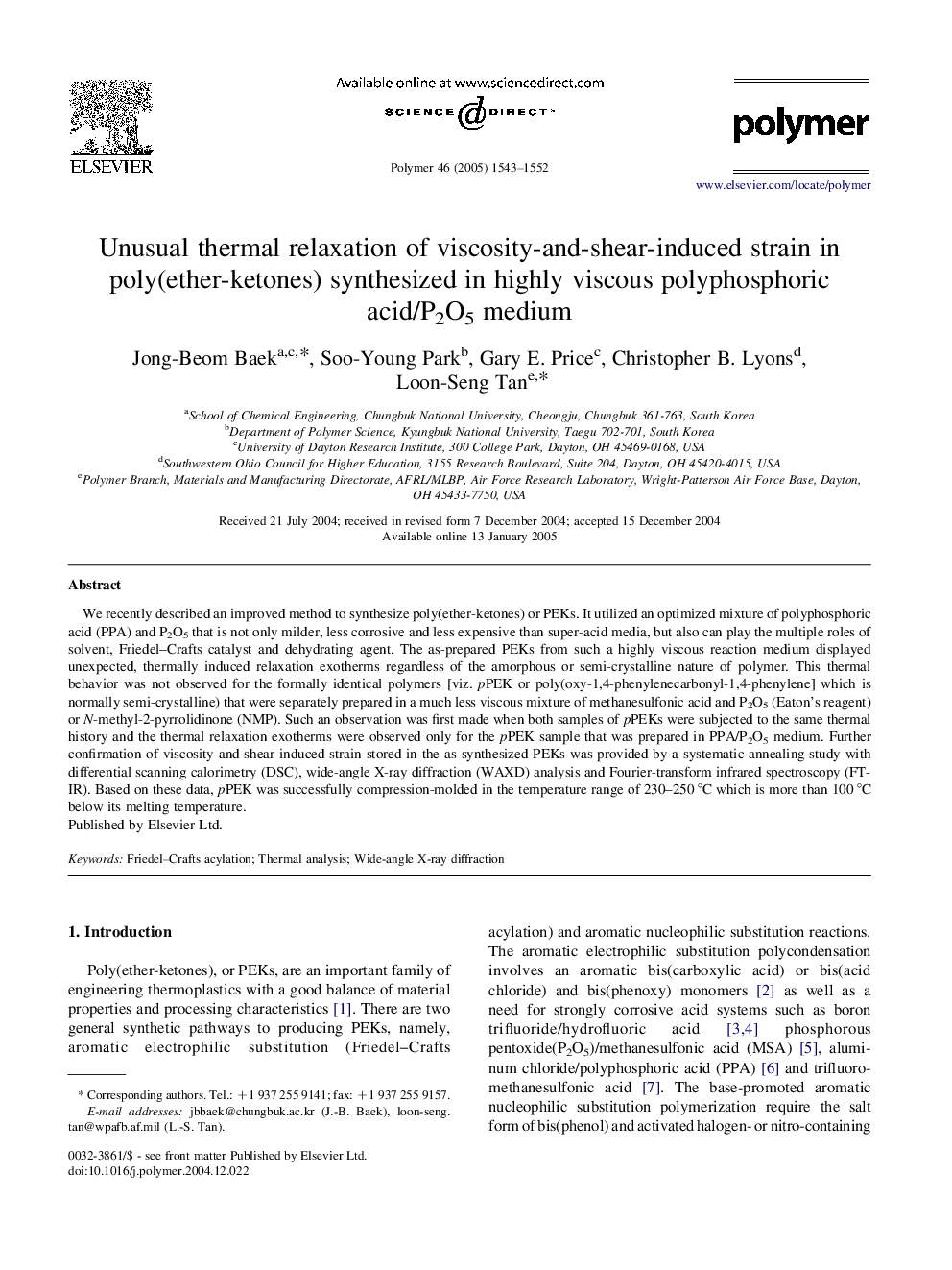| Article ID | Journal | Published Year | Pages | File Type |
|---|---|---|---|---|
| 9559235 | Polymer | 2005 | 10 Pages |
Abstract
We recently described an improved method to synthesize poly(ether-ketones) or PEKs. It utilized an optimized mixture of polyphosphoric acid (PPA) and P2O5 that is not only milder, less corrosive and less expensive than super-acid media, but also can play the multiple roles of solvent, Friedel-Crafts catalyst and dehydrating agent. The as-prepared PEKs from such a highly viscous reaction medium displayed unexpected, thermally induced relaxation exotherms regardless of the amorphous or semi-crystalline nature of polymer. This thermal behavior was not observed for the formally identical polymers [viz. pPEK or poly(oxy-1,4-phenylenecarbonyl-1,4-phenylene] which is normally semi-crystalline) that were separately prepared in a much less viscous mixture of methanesulfonic acid and P2O5 (Eaton's reagent) or N-methyl-2-pyrrolidinone (NMP). Such an observation was first made when both samples of pPEKs were subjected to the same thermal history and the thermal relaxation exotherms were observed only for the pPEK sample that was prepared in PPA/P2O5 medium. Further confirmation of viscosity-and-shear-induced strain stored in the as-synthesized PEKs was provided by a systematic annealing study with differential scanning calorimetry (DSC), wide-angle X-ray diffraction (WAXD) analysis and Fourier-transform infrared spectroscopy (FT-IR). Based on these data, pPEK was successfully compression-molded in the temperature range of 230-250 °C which is more than 100 °C below its melting temperature.
Related Topics
Physical Sciences and Engineering
Chemistry
Organic Chemistry
Authors
Jong-Beom Baek, Soo-Young Park, Gary E. Price, Christopher B. Lyons, Loon-Seng Tan,
